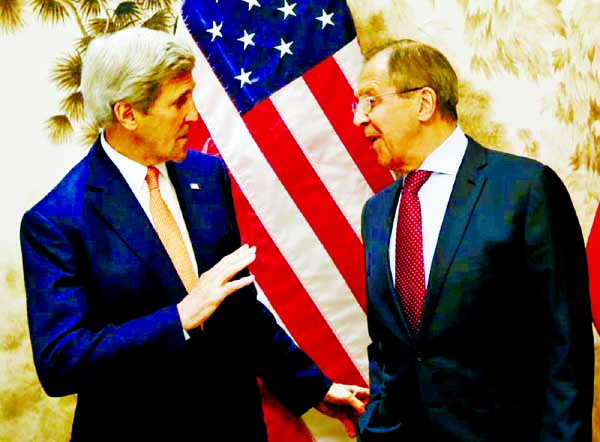
AP, Vienna :World and regional powers met Tuesday in an attempt to overcome stubborn divisions among Syrian factions that have led to the rise of Islamic extremists and claimed hundreds of thousands of lives since violence turned to war five years ago.But the session is not expected to substantially advance efforts to find peace. A diplomat familiar with the talks said participants will agree on a document focusing on trying to firm up a shaky cease-fire and improving efforts to deliver humanitarian aid. He demanded anonymity because he is not authorized to discuss the statement before its release.The talks include U.S. Secretary of State John Kerry and his Russian counterpart, Sergei Lavrov, as well as foreign ministers or other senior officials from more than 20 countries and organizations. They were convened after discussions meant to reduce differences between rival factions sputtered to a halt last month in Geneva amid a flare-up in fighting.Any statement is not expected to touch on the fate of Syrian President Bashar Assad. But going into the talks, German Foreign Minister Frank-Walter Steinmeier repeated the position held by the West and the Saudi-backed opposition that a peace agreement should outline steps leading to the end of his rule.”This is necessary because there can be no lasting future for this country with Assad,” he told reporters. “This is why we must start negotiations here in Vienna … about what a transition government could look like.”The current effort to end the five-year Syria conflict was largely spearheaded by Kerry and Lavrov, backed by major global and regional powers that formed the International Syria Support Group.A truce brokered by the U.S. and Russia sharply reduced violence in March, but has since been steadily eroding. The Vienna conference was called after U.N. Syria envoy Staffan de Mistura appealed last month to Washington and Moscow to directly intervene in putting the Syria dialogue back on track.The Geneva talks foundered after the Western- and Saudi-backed opposition suspended formal participation in the indirect talks with Assad’s envoys to protest alleged government cease-fire violations, a drop in humanitarian aid deliveries and no progress in winning the release of detainees in Syria.

